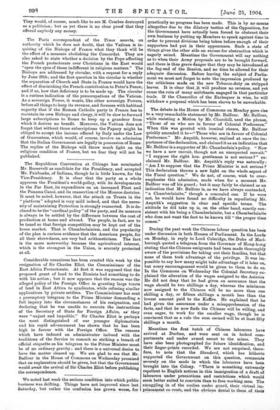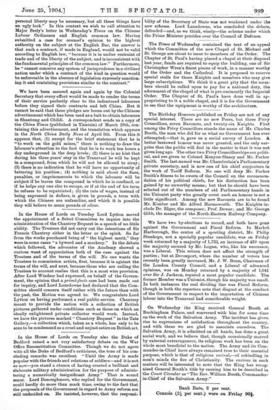Meantime the first batch of Chinese labourers have arrived at
Durban, and were sent on in locked com- partments and under armed escort to the mines. They have also been photographed for future identification, and their finger-prints recorded. We are not surprised, there- fore, to note' that the Standard, which has hitherto supported the Government on this question, comments severely, on the mode in which the labourers have been brought into the Colony. "There is something extremely repellent to English notions in this immigration of a draft of labourers under precautions and restrictions ,which would seem better suited to convicts than to free working men. The smugg' ling in of the coolies under guard, their virtual
im-
prisonment en route, and the obvious denial to them of their
personal liberty may be necessary, but all these things have an ugly look." In this context we wish to call attention to Major Seely's letter in Wednesday's Times on the Chinese Labour Ordinance and English common law. Having submitted a case for counsel's opinion to the highest authority on the subject at the English Bar, the answer is that such a contract, if made in England, would not be valid according to English law, "because it is in undue restraint of trade and of the liberty of the subject, and is inconsistent with the fundamental principles of the common law." Furthermore, he "cannot conceive any system of jurisprudence in a civilised nation under which a contract of the kind in question would be enforceable in the absence of legislation expressly sanction- ing it and containing provisions similar to the contract."



























































 Previous page
Previous page